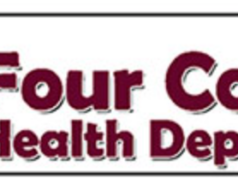Celebrate National Mentoring Month
It’s National Mentoring Month! Created in 2002 by the Harvard T.H. Chan School of Public Health and MENTOR: The National Mentoring Partnership, National Mentoring Month focuses national attention on the need for mentors, as well as how each of us—individuals, businesses, government agencies, schools, faith communities and nonprofits—can work together to increase the number of mentors to assure positive outcomes for our young people.
The Search Institute has identified 40 assets that are important for youth to have in order to grow and develop. Several of those assets are described as support – “Young people need to experience support, care, and love from their families, neighbors, and many others.â€
Parents are naturally a child’s first line of support, but it should not stop there. Youth need many more positive influences in their lives in order to develop to their full potential. Sometimes these relationships actually become safety nets as teens go through difficult times when they may or may not feel free to go to their parents with situations that come up.
Think back to your own childhood. Who were the major players in your life? Who helped you become what you are now? Who helped you discover and develop special talents and hobbies? Who was always there for you, no matter what? It may have been your parents, but in addition, it may have been a neighbor, grandparent or teacher or other community members such as Sunday School teacher, 4-H or scout leader are also examples.
These special people are called mentors. Interestingly, it comes from a word meaning “steadfast†and “enduring.†It describes a relationship between adults and youth that helps them develop and succeed. Having a mentor has benefits. It improves self-esteem, helps young people stay in school and improve in their academic achievements. A mentor helps young people discover resources and encourages new behaviors, attitudes and ambitions. Besides the benefit for the youth, being a mentor provides an avenue for adults to give back to others some of the help they have received, and brings a sense of purpose to their lives.
Mentoring is a powerful tool to help guide, empower and encourage others to reach their full potential. It’s a gateway to both learn and share a wealth of knowledge and experiences. Whether through peer mentoring, adult-child mentoring, or reverse mentoring, both mentor and mentee benefit in more ways than one.
4H mentors are more than advisors; they are role models, educators, life coaches, and friends to the 4H kids in their communities. The partnership between a 4H mentor and young mentee is important because youth are encouraged to explore their interests and receive valuable, active support.
Do your children have mentors? Do they have adults who are taking an active interest in their lives? It may or may not be a formal relationship. It is the positive relationship that makes the difference. If you do not see any of these special relationships in your child’s life, you may want to introduce them to adults who have interests similar to your child’s, or make it possible for your child to spend more time with a grandparent or other special relative. The benefits of these mentoring relationships last a lifetime.
Sources: Nebraska Extension Resources at child.unl.edu, the National Mentoring Partnership and the National 4-H website.


































